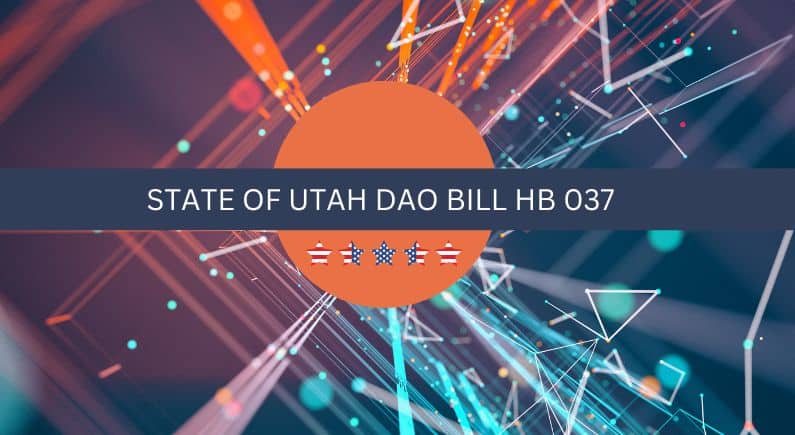Utah introduces new bill to recognize DAOs

The state of Utah has passed a new bill (HB 0357) on 1 March for DAOs (Decentralized Autonomous Organizations) to be recognized as a legal person rather than a corporate entity. The bill will come into effect on 1 January 2024 and will make Utah the first State to legalise DAOs. The law was Inspired by the COALA DAO Model Law. The state of New Hampshire will follow soon with the same bill being under review.
Until now there has been a lack of legal recognition for DAOs and this has created many challenges and unnecessary risks for those involved in DAOs. Recognizing the ‘personhood’ of a DAO would allow more interaction and a smooth transition with other businesses providing limited liability to members.
DAOs will not need a corporate structure
The law will give DAOs the same functionally benefits equivalent to corporations or LLCs. However an LLC will not be a DAO, and a DAO will not be an LLC.
DAOs will need to meet some minimum requirements. They will be permitted to govern human resources, networks and protocols for open source software as well as manage funds. Although there are many kinds of DAOs, most are blockchain-based and have borderless forms of social and business organization, with a shared, wallet and a governance process that is more open to diverse stakeholders than traditional companies.
DAO law will give Utah an advantage for crypto
An advantage in crypto projects will attract innovation and pioneering businesses to the state of Utah.
The state of Wyoming was first to market with the recognition of DAOs but the new bill in Utah, similar to the pending one in New Hampshire, will have an edge to attract and integrate transnational blockchain projects encouraging creativity and innovation.
Utah Blockchain and Digital Innovation Task Force
The DAO Bill in Utah is sponsored by Jordan D. Teuscher and Senator Kirk A. Cullimore. The legal team for the Utah Blockchain and Digital Innovation Task Force is headed by Polsinelli Law Firm. The bill is also designed to offer a more consistent tax regime.
The Utah Act defines the difference, which means DAO participants have more clarity and protection to experiment and innovate.
In the House, the bill was met with 62 votes in favour of the bill and 11 votes against. Skeptics raised concerns about accountability and fraud in a DAO-enabled environment. Regulation is clearly not going to be easy as this would mean setting up many controls which it may hamper creativity and innovation.
Blockchain is such an amazing creation because it is already autonomous, it is already diversified, it is already spread out. If I thought that the bill was an improvement to blockchain, I would be very enthusiastic about it but I think it’s a way to control something that really should be left out in the free market as it is right now”. – Representative of the House Phil Lyman, a blockchain believer, who later voted against the bill
Utah and New Hampshire lead the way
Utah and New Hampshire may most likely spark off new interest with different jurisdictions to follow the same route and accept DAOs into their traditional regulatory structures. This may also give a boost to the crypto sector during these turbulent times. The impact of DAOs will certainly be positive.
Related topics:






